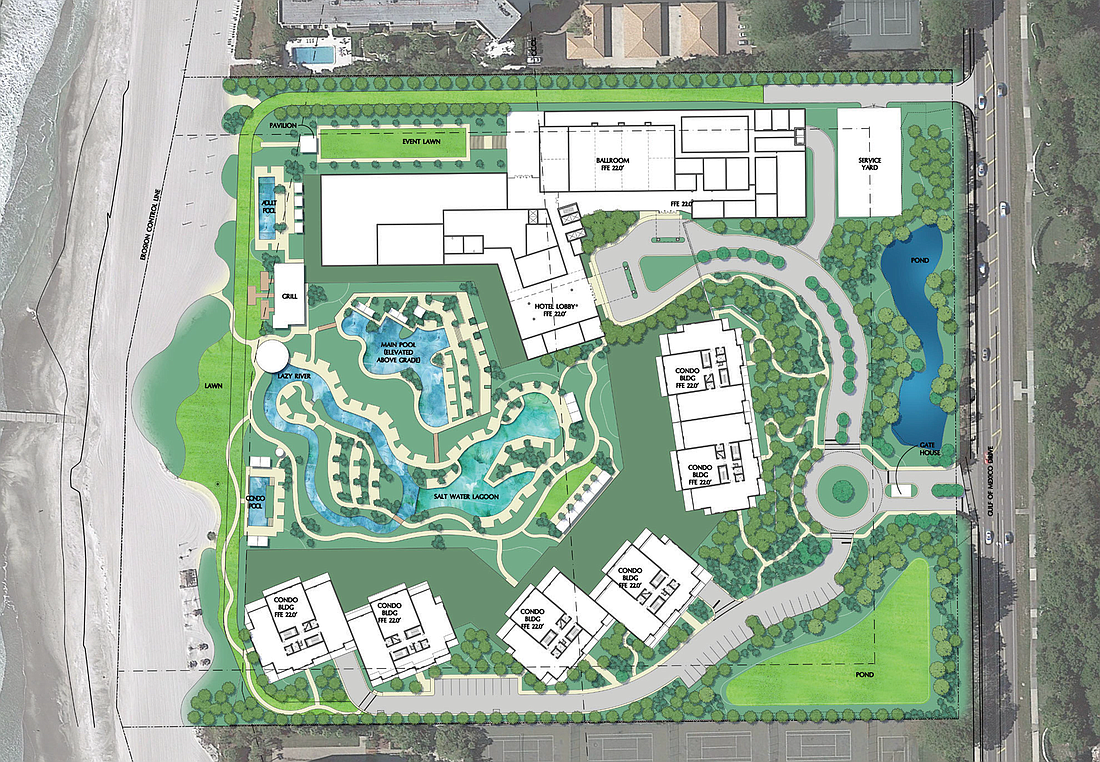- December 13, 2025
-
-
Loading

Loading

Blake Fleetwood said he could sleep in his Colony Beach & Tennis Association condo unit tonight.
But it’s not easy for him to get there.
That’s because the town has deemed the property off limits — Fleetwood said he has to sneak through a hole in the fence to even get to the front door of the property he owns.
Fleetwood, a member of the Colony Beach & Tennis Association, owns three units at the decades-old resort, now an abandoned, fenced-in property overgrown with sea grapes, sea oats and railroad vines. A gulf-facing window is painted from the inside with a word the once-upscale complex seems to be screaming to the world: “HELP.”
“My units are in perfect shape, and I see no need to tear them down,” Fleetwood said. “If there are buildings there that need to be torn down, tear them down, but not my unit.”
But that’s exactly what Unicorp National Development, an Orlando-based developer that’s been pursuing the property for more than two years, proposes to do.
The company’s president, Chuck Whittall, reached an agreement with the Colony Beach & Tennis Association last week to allow for judicial termination —legally known as “equitable relief” — of the condominium: allowing the court to consider and possibly dissolve the association without consent from its members.
“We’re not aware of any reported decision where this process has been done,” said attorney Jeff Warren, counsel for the Colony Beach & Tennis Association.
The equitable relief law is new to Florida, ratified earlier this year, “based upon the kinds of circumstances that exist at The Colony,” Warren said. The law comes into play, he said, when a property has been deemed uninhabitable by a court because it does not meet the building codes that govern the property.
This is “essentially” a last resort, Warren said, now being considered because of an inability to reach consensual termination by a vote of the owners. Florida law requires 95% of condominium owners to agree to a dissolution of a condo association.
“It’s a legal remedy where you have multiple owners and you have an impasse, and they can’t decide what to do with what they jointly own,” Warren said.
Whittall said he hopes to file his case for association dissolution with the court within the month.
At the hearing, Warren said a panel of Sarasota Circuit Court judges will hear the facts of the case: That they haven’t been inhabited since 2010; that there is “substantial damage to all, or parts of the condominiums,” that experts have deemed the property unrestorable; and that “all of this results in economic waste and areas of disrepair that are harmful to the public.”
Also part of the association’s new agreement with Whittall is a reworked price structure for Unicorp to buy the condos: $170,000 a unit, plus $100,000 for midrises and an extra $200,000 for beachfront dwellings — for about six months, said association President Jay Yablon.
Andy Adams, who owns more than 75 units at the Colony Beach & Tennis Association, could not be reached for comment.
Yablon described the situation with Adams and his units as an impasse to development.
Fleetwood said the condo association neglected the property when it could have been repaired years ago in an effort to give favor to a new development.
“I’d like to keep my three condos,” Fleetwood said. “You can’t take people’s homes away from them without a damn good reason.”